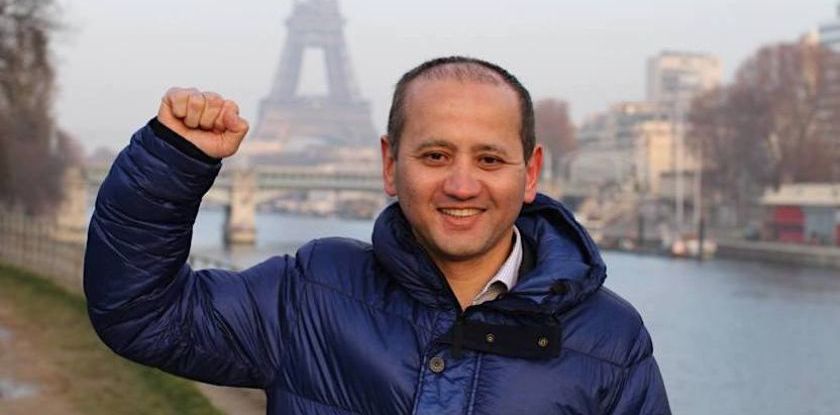Akorda’s decision to proclaim the DVK-2 (Democratic Choice of Kazakhstan) movement and its leader Mukhtar Ablyazov as extremist and to start prosecuting those affiliated with it one way or another seems quite baffling. Not for the actions disproportionate to the actual threats which is normal for the state with the authoritarian political regime but for the very idea to begin the “witch hunt”.
The matter is that, for all his fame and popularity in the country’s information space, today Mukhtar Ablyazov does not pose much threat for Nursultan Nazarbayev. There is a huge distance between the social network activity and the actual protest actions. Moreover, such an activity, in fact, works to Akorda’s advantage for is allows for some release of the tension among those few Kazakhs who are not afraid to be political.
However, Akorda has now done something that Mukhtar Ablyazov (consciously or not) have been trying to achieve – acknowledged him as its political opponent thus dramatically increasing his standing as an influential political figure in the eyes of the domestic and international community. For the presence of DVK-2 on the list of the organizations banned in Kazakhstan together with Taliban, al-Qaeda, IMU is, in fact, nothing else but the acknowledgement of the fact that the organization does exist and poses a serious threat.
It is not clear why Akorda acted the way it did.
On one hand, out of the seven Kazakhstan organizations deemed by the republic as extremist, three are affiliated with the name of Mukhtar Ablyazov one way or the other. We are talking about Halyk Maydany (People’s Front) movement (Decision #2 of the Almalinskiy District Court, Almaty, December 7, 2012), Agla People’s Party (Decision #2 of the Almalinslyi District Court, Almaty, December 21, 2012), and now the Democratic Choice of Kazakhstan (DVK) – 2.
On the other hand, there has been no real activity on the part of the DVK-2 members in Kazakhstan including mass activities with the participation of at least several hundreds of people.
Therefore, it is very likely that the main reason for Akorda to act the way it did lies in the fear or the desire of certain influential groups to raise the political tensions in the country.
As for the fear, there is actually some basis for it. During the “Arab Spring”, the social networks played an important role in mobilizing the citizens and in consolidating them against the authoritarian regimes. Apart from that, there does exist the elevated social activity of the Kazakhs on the social networks such as Facebook when many people and non-profit organizations come together to achieve a concrete goal, for instance, to protect the seven-year old living the South-Kazakhstan region from the physical violence on the part of his teen-fellow villagers and the arbitrary will of the local officials.
In our opinion, however, a different explanation of the events is much more plausible. It has to do with Akorda’s many incorrect moves from the point of view of the public relations and the common logic. Practically the entire past year, the Kazakhstan authorities, instead of compromising Ablyazov in the eyes of the Kazakh citizens using the criminal investigations against him, were in fact actively “promoting” him.
As a result, Mukhtar Ablyazov who, after his 2013 arrest in France, has practically disappeared from the public eye, is now, once again, a household name in Kazakhstan and not so much as a criminal but as the person who can actually stand against the authorities, the ruling elite, the state, and Nursultan Nazarbayev personally.
It might not have been too critical for Akorda had it not been for the people’s dissatisfaction with the decreasing level and quality of life. As a result, the wave of the accusations on the part of the authorities against Mukhtar Ablyazov is raising interest both to himself and to his ideas even on the part of the socially passive citizens.
Obviously, such moves on the part of the people in charge of fighting Ablyazov and the other oppositionists and preserving the political stability is clearly a mistake. However, this is only the case if we are to look at the events from the point of view of preserving the status-quo in the republic. But if there is some influential group in Akorda that wishes to obtain more power via showing its necessity, value, and effectiveness to the President and demonizing Mukhtar Ablyazov and DVK-2 for that very purpose, it all becomes clear.
If we are correct in our assumption, then it looks like Mukhtar Ablyazov’s political value lies not in himself, his intentions, and slogans but in the fact and it is he who is able to perform the role of the Devil in the scheme of confronting the latter with the God. But such schemes are dangerous since, in the case of some cardinal changes in the country, a one-act role exchange becomes possible when the Devil becomes the God and the God becomes the Devil.
It seems that the people playing this card these days do not take this danger into consideration.





Antonio
Astana doesn't know how many supporters the opposition really has, but they're clearly nervous enough to snatch balloons from children, which adds to Ablyazov's argument that Kazakhstan isn't the democracy its leaders like to say it is